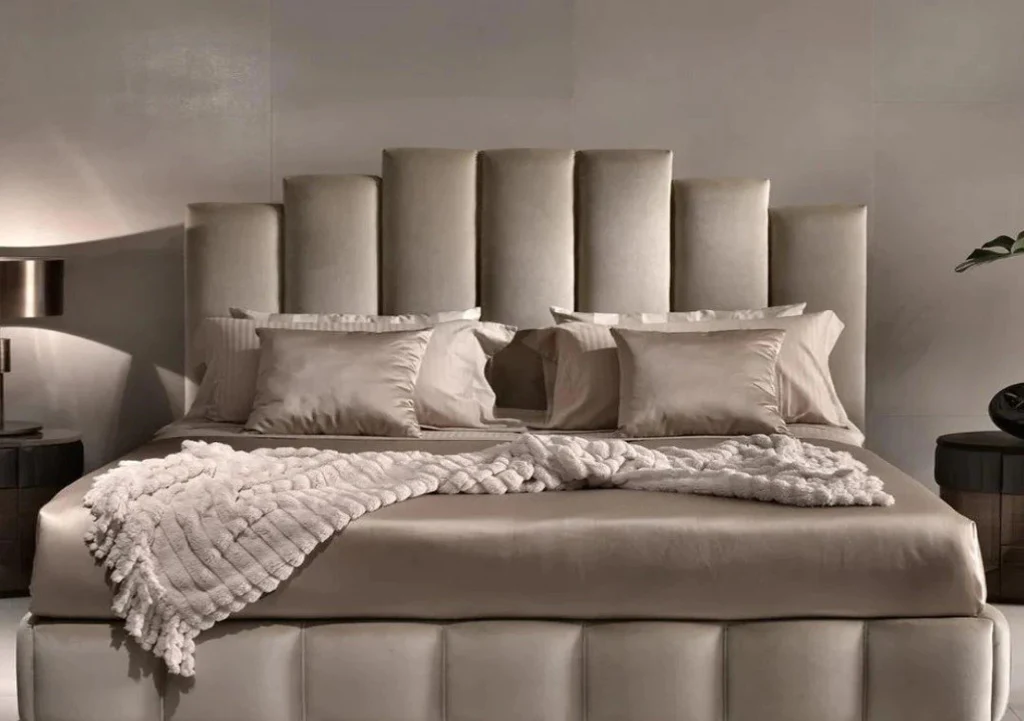Why is Bespoke So Expensive? Bespoke products often come with a hefty price tag, leaving many consumers wondering why they’re so expensive. Let’s delve into the details to understand the rationale behind the high cost of bespoke items.
Introduction to Bespoke Products
Bespoke products are custom-made items tailored to the specific requirements of individual customers. Whether it’s clothing, furniture, or accessories, bespoke goods are designed and crafted to meet the unique preferences of the buyer.

What Does “Bespoke” Mean?
The term “bespoke” originated from the tailoring industry, where it referred to garments that were “spoken for” or commissioned by a particular client. Today, it encompasses a broader range of custom-made products beyond clothing.
Understanding the Craftsmanship Involved
Crafting bespoke items involves a meticulous process that prioritizes attention to detail and precision.
Customization Process
Each bespoke piece undergoes a highly personalized customization process, ensuring that it meets the exact specifications of the customer.
Attention to Detail
Craftsmen pay close attention to every detail, from measurements to design elements, to ensure a flawless end product.
Quality of Materials Used
Bespoke products are crafted using premium materials chosen for their superior quality and durability.
Premium Selection
Customers have the freedom to select materials of their choice, ranging from luxurious fabrics to rare woods, contributing to the exclusivity of the final product.
Durability and Longevity
The use of high-quality materials ensures that bespoke items are built to last, offering superior durability and longevity compared to mass-produced alternatives.
Limited Production and Exclusivity
Bespoke products are often produced in limited quantities, adding to their exclusivity and perceived value.
Scarcity Adds Value
The limited availability of bespoke items enhances their desirability, making them highly sought after by discerning consumers.
Unique Designs
Each bespoke piece is uniquely designed to reflect the individual style and preferences of the customer, further enhancing its exclusivity.
Skilled Labor Costs
Crafting bespoke items requires highly skilled artisans who command higher wages due to their expertise and craftsmanship.
Master Craftsmen
Skilled artisans with years of experience are entrusted with the task of bringing bespoke designs to life, contributing to the high labor costs associated with these products.
Time-Intensive Work
The intricate nature of bespoke craftsmanship often involves time-consuming processes, further adding to the labor costs involved.
Marketing and Branding Influence
The branding and marketing strategies employed by bespoke artisans play a crucial role in shaping consumer perceptions and justifying premium pricing.
Perceived Value
Effective branding and marketing efforts create a perception of luxury and exclusivity, influencing consumers to associate bespoke products with superior quality and craftsmanship.
Prestige and Status
Owning a bespoke item is often viewed as a symbol of status and prestige, driving demand among affluent consumers who value exclusivity and individuality.
Client Involvement and Personalization
One of the key appeals of bespoke products is the level of client involvement and personalization offered throughout the design process.
Tailored Experience
Customers enjoy a tailored experience from start to finish, collaborating closely with artisans to create a product that reflects their unique style and preferences.
Meeting Specific Preferences
Bespoke artisans go above and beyond to accommodate the specific preferences and requirements of each client, ensuring a truly personalized end product.
Comparison with Mass-Produced Alternatives
When comparing bespoke products to their mass-produced counterparts, the disparities in quality and craftsmanship become apparent.
Quality Disparity
Bespoke items are crafted with unparalleled attention to detail and precision, resulting in superior quality and craftsmanship compared to mass-produced alternatives.
Mass Market vs. Customization
Mass-produced products lack the individuality and customization offered by bespoke items, making them unable to match the level of craftsmanship and exclusivity.
Environmental Considerations
In recent years, there has been a growing emphasis on sustainability and ethical practices within the bespoke industry.
Sustainable Practices
Many bespoke artisans prioritize sustainability by sourcing materials responsibly and minimizing environmental impact throughout the production process.
Ethical Sourcing
Ensuring ethical sourcing of materials is paramount for bespoke artisans, who strive to uphold ethical standards and support local communities.
Factors Influencing Bespoke Pricing
Several factors contribute to the pricing of bespoke products, including the location of production and the reputation of the artisans involved.
Location of Production
The cost of labor and materials can vary significantly depending on the location of production, with artisanal hubs often commanding higher prices.
Reputation of Artisans
Established artisans with a reputation for excellence can demand premium prices for their bespoke creations, reflecting their expertise and craftsmanship.
Market Demand and Supply Dynamics
The economics of bespoke products are influenced by market demand and supply dynamics, which can fluctuate based on consumer preferences and economic conditions.
Economics of Bespoke Products
The scarcity and exclusivity of bespoke items contribute to their perceived value, driving demand among consumers seeking unique and personalized products.
Balancing Supply and Demand
Bespoke artisans must carefully balance supply and demand to maintain profitability while preserving the exclusivity of their products.
Cultural Significance and Heritage
Bespoke craftsmanship is deeply rooted in tradition and heritage, with many artisans preserving age-old techniques passed down through generations.
Traditional Craftsmanship
Bespoke artisans uphold traditional craftsmanship techniques, ensuring that time-honored skills are preserved and passed on to future generations.
Preserving Artisanal Skills
Supporting bespoke artisans helps preserve artisanal skills and cultural heritage, ensuring that traditional craftsmanship continues to thrive in a modern world.
Addressing Common Misconceptions
Despite the allure of bespoke products, there are common misconceptions surrounding their perceived value and affordability.
Expensive Doesn’t Always Mean Better
While bespoke items may come with a higher price tag, the value they offer in terms of quality, craftsmanship, and personalization often outweighs the cost.
Value Beyond Price
Bespoke products offer intangible value beyond their monetary worth, including the satisfaction of owning a one-of-a-kind item tailored to individual preferences.
Conclusion: Understanding the True Cost of Bespoke Products
In conclusion, the high cost of bespoke products can be attributed to a combination of factors, including the craftsmanship involved, quality of materials used, and exclusivity of the design. While bespoke items may come with a premium price tag, they offer unparalleled quality, customization, and prestige that justify the investment for discerning consumers.
FAQs
- Are bespoke products worth the price?
- Yes, bespoke products offer superior quality, craftsmanship, and personalization that justify their higher price tag.
- How long does it take to receive a bespoke item?
- The timeline for receiving a bespoke item varies depending on factors such as complexity, materials, and artisan availability.
- Can I request alterations to a bespoke design?
- Yes, bespoke artisans typically accommodate requests for alterations to ensure that the final product meets the customer’s expectations.
- Do bespoke products have resale value?
- Yes, bespoke items crafted with high-quality materials and craftsmanship often retain their value and can be resold at a premium.
- Are bespoke products sustainable?
- Many bespoke artisans prioritize sustainability by sourcing materials responsibly and minimizing environmental impact throughout the production process.
